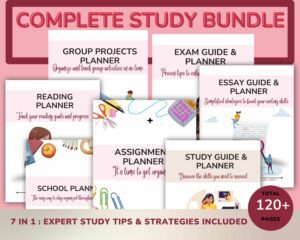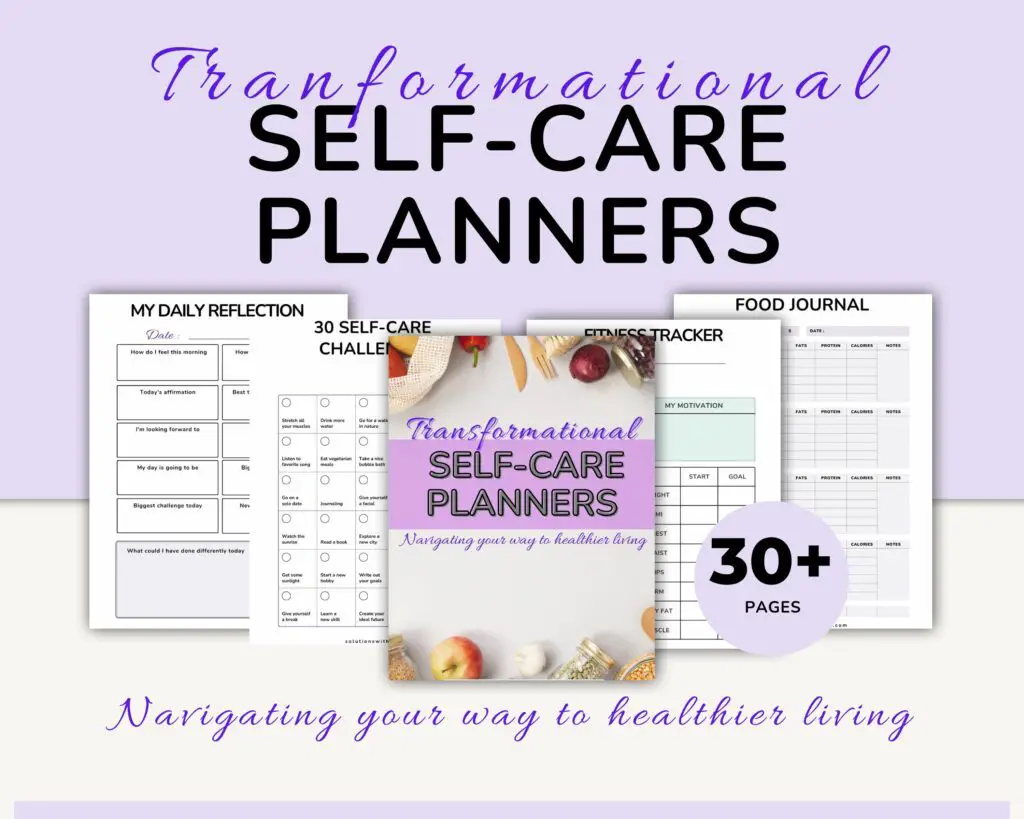Working memory is a critical cognitive function that we use daily to focus and learn. Unfortunately, it often diminishes with age. Luckily, you can take steps to improve your working memory.
It has been said that working memory is like a muscle – the more you use it, the stronger it becomes. If this is true, activities to improve working memory should be a top priority for anyone looking to boost their cognitive performance. Whether you are looking for traditional methods or something more creative, here is a list of activities that have been shown to improve working memory function. Give them a try and see which works best for you.
- Working memory is a critical cognitive function that we use daily to focus and learn. Unfortunately, it often diminishes with age. Luckily, you can take steps to improve your working memory.
- What is working memory?
- Strategies to improve working memory
- 1. Crossword puzzles, sudoku, number sequences, chunking improve working memory
- 2. Creative activities improve working memory
- 3. Physical activity to improve working memory
- 4. Mental exercises improve working memory
- 5. Social activities increase working memory
- 6. Relaxing activities increase working memory
- Final words on improving working memory
- How can I become a critical thinker?
- What are the benefits of critical thinking?
Want the perfect academic resource for your studies?
This all-in-one resource is perfect for any person who wants to take charge of their academic journey.
The bundle includes a total of 7 printables, each equipped with multiple worksheets, trackers, and expert advice.
What is working memory?
Working memory is a system that temporarily stores and processes information for immediate use whereas long-term memory encodes and stores data over prolonged periods of time.
Unfortunately, the capacity of working memory is severely limited when compared with its counterpart which results in the frequent “loss” of information. This is why working memory training is so crucial in our day to day lives.
I’m sure you’re wondering if working memory isn’t the same as short term memory?
Well, although working memory and short term memory are very similar, they are not the same. You should think of short term memory as a storage and working memory as having the additional ability to use the information for a short time.
Notably, working memory is important because it helps you focus on what you are doing rather than resetting or continually starting over.
It also allows you to complete tasks even when there are distractions around you. As such, working memory has been linked to learning, planning, reasoning and comprehension (Cowan, 2014).

"We normally avoid mental overload by dividing our tasks into multiple easy steps, committing intermediate results to long-term memory or to paper rather than to an easily overloaded working memory." - Daniel Kahneman
Strategies to improve working memory
There are many simple activities that can improve working memory and thus drastically enhance your ability to focus and remember information.
| Category | Activity |
|---|---|
| Traditional | Crossword puzzles, sudoku, chunking number sequences |
| Creative | Painting, drawing, sculpting, cooking/baking, gardening |
| Physical | Aerobic exercise, strength training, balance exercises |
| Mental | Quiz games, problem-solving tasks, mental imagery, strategy games |
| Social | Playing cards/board games with others, conversation, networking |
| Relaxing | Listening to music, reading, sleeping, spending time outdoors |
1. Crossword puzzles, sudoku, number sequences, chunking improve working memory
One way to improve your working memory is through traditional methods such as puzzles, mental arithmetic, and learning new information.
Puzzles in particular are a great way to enhance cognitive function because they require you to use multiple areas of the brain simultaneously.
When it comes to mental arithmetic, challenging yourself with harder problems will force your brain to work harder and improve its function.
Another way to improve working memory is by practicing “chunking.” This involves grouping items together into larger units, which makes them easier to remember.
For example, instead of trying to remember the digits 4,8,15,16,23,42 individually, it is easier to chunk them into groups (48, 1516, 2342) and then remember those larger groups of digits.
Finally, learning new information will also help to improve working memory as it provides more material for the brain to process.
Read also: 11 Reasons why puzzles are good for the brain
2. Creative activities improve working memory
Studies have found that painting, drawing, sculpting, cooking, and gardening can all lead to improvements in working memory.
One theory is that these activities help to improve attentional control, which is the ability to focus on relevant information and ignore distractions.
Another possibility is that they promote the development of new neural connections. Whatever the mechanism, it is clear that creativity can be a powerful tool for enhancing cognitive function.
3. Physical activity to improve working memory
Improving physical fitness through aerobic exercise, strength training and balance exercise enhances working memory by increasing the efficiency of information processing.
A study tested the effect of aerobic exercise on prefrontal cortex activity in participants with varying levels of physical fitness.
The participants were pre-assessed to see if they fell in the low, medium or high fitness categories (Moriya et al., 2016).
Low-fit individuals who underwent aerobic exercise training showed an increase in prefrontal cortex activity, whereas no change was observed in low-fit individuals with no increased fitness.
Read also: 11 Amazing benefits of regular physical activity

"Working memory involves two different but related skills. The first is the ability to hold information in mind while performing complex tasks." - Richard Guare
4. Mental exercises improve working memory
Mental exercises have been found to be a simple and effective way to improve working memory.
For instance, mental imagery is defined as the process of creating mental images of objects, people, or experiences; even imaginal exposures.
As such, it has been found to improve working memory capacity by providing a way to store and retrieve information in a more efficient manner.
FYI, mental imagery is also an effective tool for mood and anxiety disorders (Skottnik, 2019).
Quiz games and problem solving tasks improve working memory by giving your brain a workout.
In fact, when you play a quiz game or solve a problem, you’re effectively forcing your brain to hold onto information and then use it to find the right solution. This repeated practice can help improve your overall working memory capacity.
5. Social activities increase working memory
Playing cards and board games with others will likely improve working memory.
This is perhaps due to the social interaction involved in playing these games which helps to keep the mind active and improve cognitive function.
In addition to improving working memory, playing cards and board games with others also have other benefits such as improving problem-solving skills, teamwork, and communication.
Plus, it can also be a great way to relax and have fun.
So next time you’re looking for a way to improve your working memory, consider getting together with some friends for a game night.
6. Relaxing activities increase working memory
On the other hand, if you are looking for something more relaxing, there are also activities that can help. These include listening to music, spending time outdoors and even sleeping.
Another example is reading. By focusing on the story, you are giving your working memory a break while still providing stimulation.
The best thing about these activities is that they are all enjoyable and can be incorporated into your daily routine easily.
Music has been shown to improve verbal memory encoding which improves cognitive function.
Studies found that relaxing may improve working memory by decreasing the levels of the stress hormone cortisol which has been shown to interfere with working memory.
Read also: 10 Amazing benefits of reading a book

"Anything that occupies your working memory reduces your ability to think." - Daniel Kahneman
Final words on improving working memory
Working memory is essential for most of the tasks we do every day, and it’s an area where many people struggle.
Whether you want to improve your own working memory or help someone else who struggles with this cognitive process, these activities will be helpful.
What activity have you tried? How did it go? Share your thoughts!
Related topics
How can I become a critical thinker?
When it comes to critical thinking, there are a lot of misconceptions. Some people believe that you need to be born with a certain set of skills in order to be able to think critically.
Others may think that it’s something that can only be learned in an academic setting. The truth is, critical thinking is a skill that can be learned by anyone.
And, it’s a skill that’s incredibly important, especially in the age of information overload.
So, how can you become a critical thinker? In this post, we’ll explore some tips and techniques that will help you become more analytical and thought-provoking in your thinking. Read more
What are the benefits of critical thinking?
Do you often find yourself second-guessing your decisions? If so, you’re not alone. Making choices is a fundamental part of life, yet it can be difficult to know what’s the right thing to do. That’s where critical thinking comes in.
By thinking critically, you can carefully examine your options and make sound decisions based on logic and evidence. Here are just some of the benefits of thinking critically.
READY TO TRANSFORM YOUR SELF-CARE ROUTINE?
It’s time to make self-care a delight instead of a chore.
This incredible free resource comes packed with features for tracking everything from your daily water intake to how many steps you take.
References
Adam KCS, Vogel EK. Improvements to visual working memory performance with practice and feedback. PLoS One. 2018 Aug 30;13(8):e0203279.
Cowan N. (2014). Working Memory Underpins Cognitive Development, Learning, and Education. Educational psychology review, 26(2), 197–223.
Moriya M, Aoki C, Sakatani K. Effects of Physical Exercise on Working Memory and Prefrontal Cortex Function in Post-Stroke Patients. Adv Exp Med Biol. 2016;923:203-208.
Strobach, T., Huestegge, L. Evaluating the Effectiveness of Commercial Brain Game Training with Working-Memory Tasks. J Cogn Enhanc 1, 539–558 (2017).
Skottnik L, Linden DEJ. Mental Imagery and Brain Regulation-New Links Between Psychotherapy and Neuroscience. Front Psychiatry. 2019 Oct 30;10:779.
Rushana Greenidge-Horace













Leave a Reply